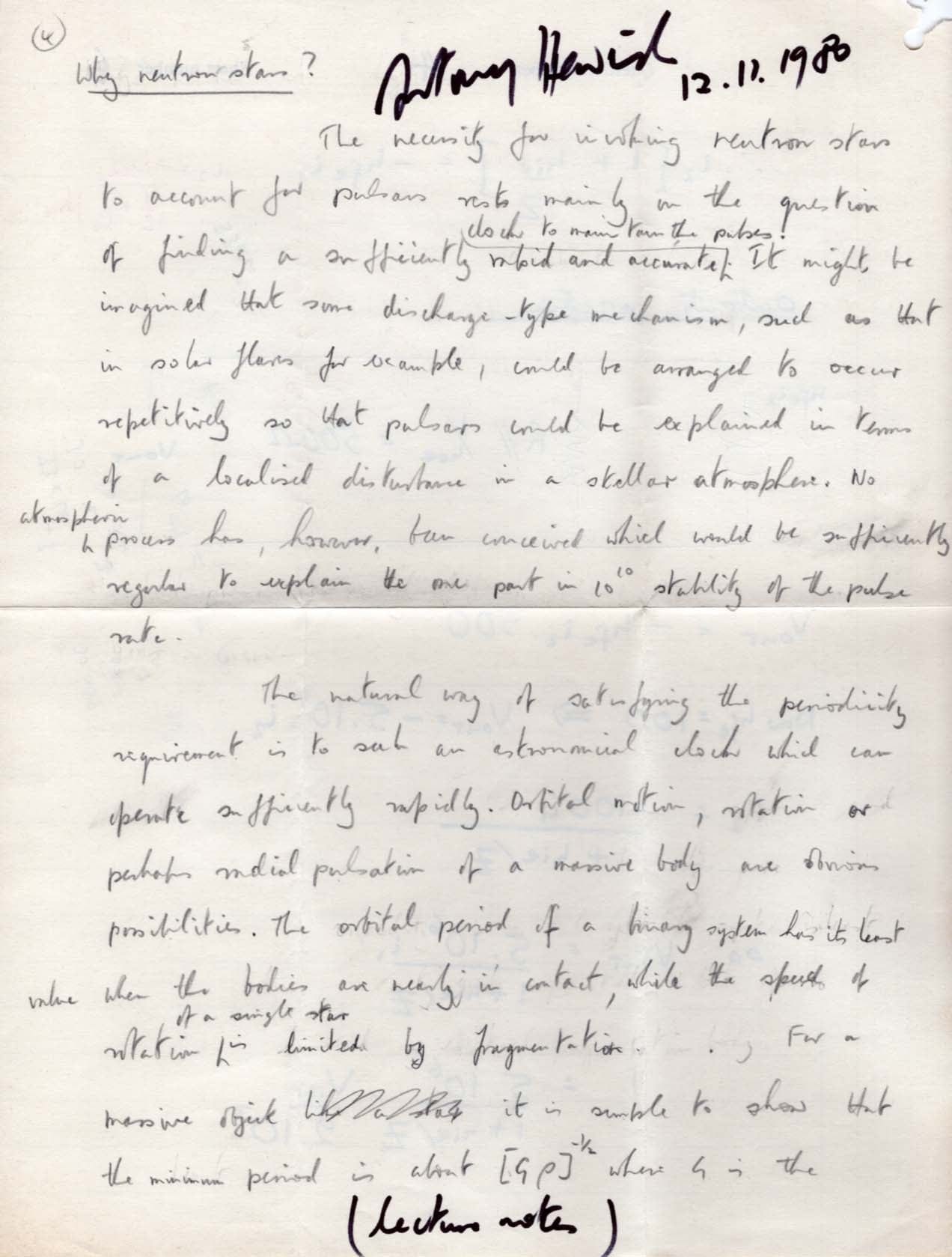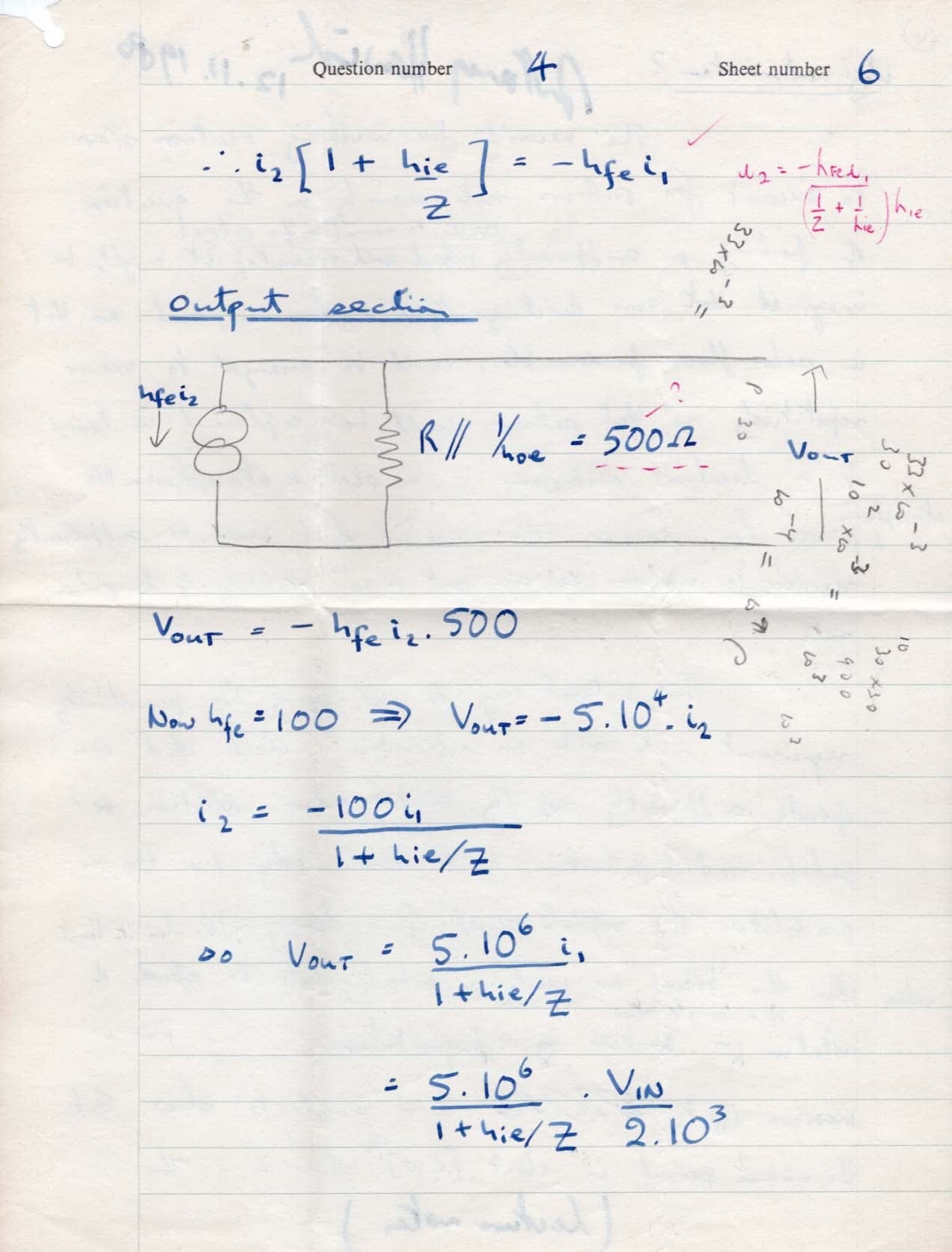Descripción
Autograph manuscript signed, one page (verso a corrected exercise), 8,75 x 11,25 inch, manuscript with scientific content, written in pencil & subsequently signed and inscribed in black felt tip "Antony Hewish - 12.11.1980 - (lecture notes)", with intersecting letter folds, and a torn file hole to the upper right corner - in fine condition.
Más información sobre la persona
Profession:
(1924-) British radio astronomer who won the Nobel Prize for Physics.
Year of Birth: 1924
Certificado de autenticidad
Todas nuestras piezas se venden con un certificado de autenticidad. Si una pieza resulta estar equivocada o si no le gusta un autógrafo, recuperará su dinero durante toda la vida.
Pago y seguridad
Su información de pago se procesa de forma segura. No almacenamos los detalles de la tarjeta de crédito ni tenemos acceso a la información de su tarjeta de crédito.


